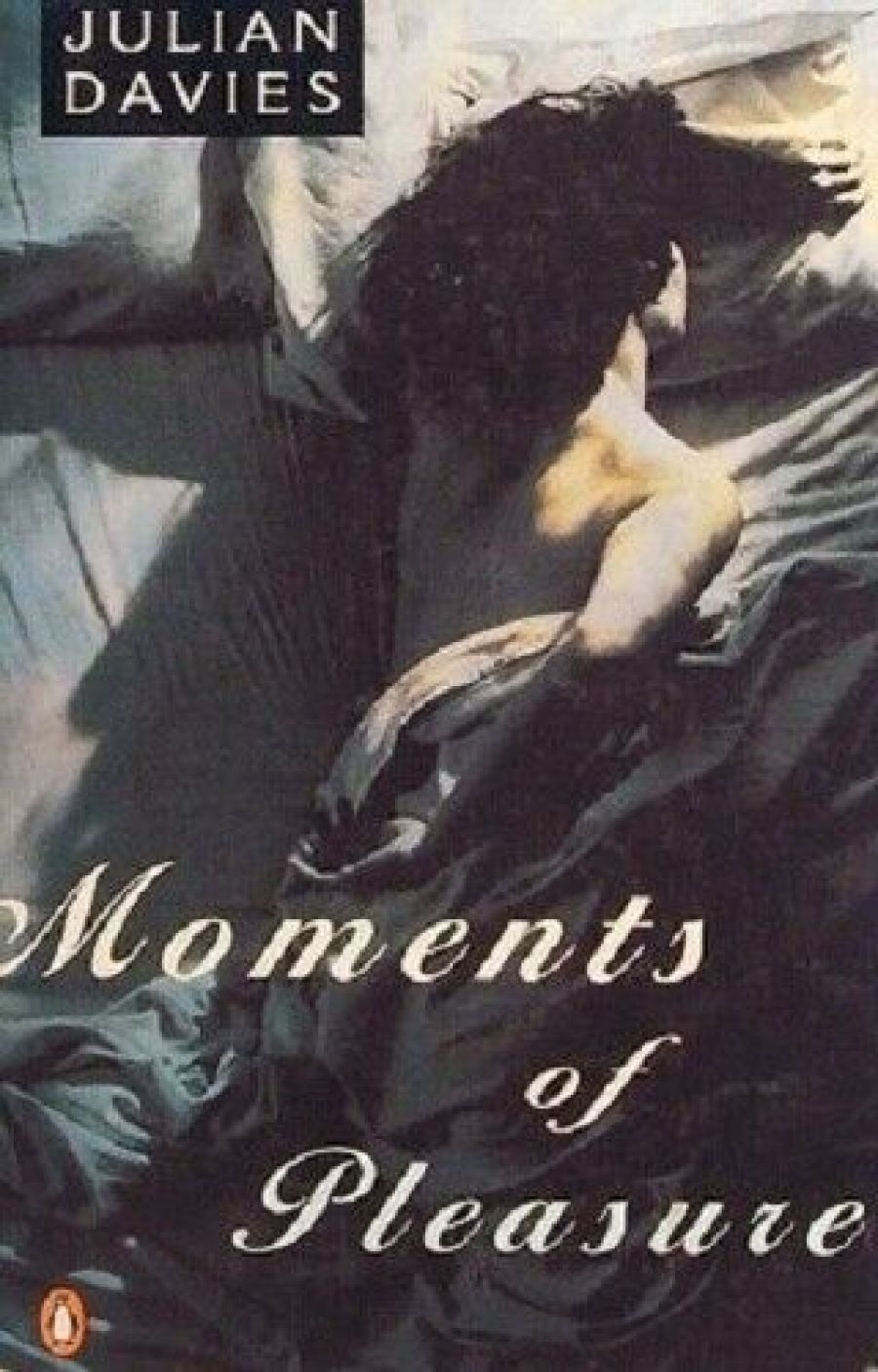
- Free Article: No
- Contents Category: Fiction
- Review Article: Yes
- Online Only: No
- Custom Highlight Text:
Beatrice Wood, banished by those around her to ‘the category of the aged’, is both the focus and the strength of Julian Davies’s third novel, Moments of Pleasure. Choosing to live her life as a single woman, she has been the unforgiven Magdalene of her family because for fifty years she has been the lover of Mark, a man twice married. A dapper moustache of a man, Mark drifts in and out of both Bea’s life and the novel.
- Book 1 Title: Moments of Pleasure
- Book 1 Biblio: Penguin, $16.95 pb
Her beliefs and choices are a source of bewilderment and even anger to her beloved grandniece, Jennifer. Fevering away at her PhD, Jennifer believes her great-aunt has allowed herself to be used by Mark and to live the life of the ‘victim’. She is angry that ‘Bea had been deserted, neglected, kept as an adjunct to Mark’s married life’.
Perceptively and deftly, Davies creates this loving conflict between two women, one of whom was born at the beginning of the century while the other struggles to create herself as the century draws to a close. A climatic confrontation between the two women, in a room that Bea would call a ‘lavatory’ and Jennifer a ‘toilet’, is a powerfully described, with a confident emotional is Steven, a young American who loves them both and shares Bea’s love of literature, which Jennifer scorns. New to Australia and bemused by such realities as ‘the omnipresence of toast’, he is ‘unwilling to accept the total failure of a whole nation of men’, which is pretty much Jennifer’s view of the world she lives in.
Steven attempts to recreate the people around him in muddling attempts at writing. Bea has kept a diary since the late 1920s. Davies has a rather solemn preoccupation with the ways in which we attempt to create ourselves and others in language.
Bea says of Jennifer, ‘she takes on the one-dimensional quality of a character from a badly written book’. Davies’s book is anything but badly written. His prose is assured, precise, noticing. However, Jennifer, the thoroughly modern woman, does border on the one-dimensional, whereas Bea, dancing to Fats Waller when she is eighty-seven, has a vibrant life. When it comes to presence, understanding, conflict between the two women, Bea’s Marlene Dietrich to Jennifer’s Kylie Minogue PhD, Bea wins in almost a non-contest, simply because Davies has invested her with more reality.
Moments of Pleasure offers the interest of touching a wide range of issues: post-modernism, sexism, feminism, ageism, consumerism, sexual liberation, class distinction, alienation, generational change, parenting, the future of the novel – Davies has something to say on all of them. His taking on the role of a homespun Henry James almost landslides the movement and interaction of the novel.
And if it does escape being buried in political politeness, it almost dies of detail. Take any descriptive passage, whether about ‘a deposit of grease’ or a shaving cut, and you will be impressed by Davies’ shrewd observations and finely crafted prose. Jennifer ‘still believed that the ordinary and intimate details of life make up the real substance of history’. That is also obviously Davies’ belief and I have no argument with it. But I do have queries about how much detail you present to the reader and how much you leave to the imagination, without constantly observing, explaining, elaborating.
Moments of Pleasure is a thoughtful, intelligent, sharply written and emotionally confident novel. However, I think it is a little too preoccupied with the importance of being earnest about everything that has shaped the postmodern sensibility.


Comments powered by CComment